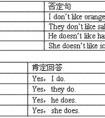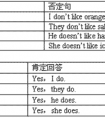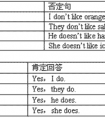用所给动词的适当形式填空。1. Look! The girls ______ (write) on the wall.2. Would you like something ______ (eat)?3. Don't ______ (stand) behind the wall!4.-七年级英语
他一定/可能/也许知道这个问题的答案。
(2)It is cold in the room. They must have turned off the heating.
屋里很冷,他们肯定把暖气关了。
2. 否定句中用can’t / couldn’t(不可能), may not/might not (可能不)。
(1)It can’t/couldn’t be the headmaster. He has gone to America. 这不可能是校长,他去美国了。
(2)He may not/might not know the scientist. 他也许不认识那位科学家。
3. 疑问句中用can/could (能……?)。
(1)Could he have finished the task? 他可能把任务完成了吗?
(2)Can he be at home now? 他现在能在家吗?
注:以上三种句式中情态动词的语气按程度都是依次递减的。Might, could并非may, can的过去式,而表示语气较为委婉或可能性较小。
(二)情态动词表推测的三种时态
1. 对将来情况的推测,用“情态动词 + 动词原形”。
(1)She must / may / might / could arrive before 5. 5: 00 前她一定/可能/也许到。
(2)She must/may/might/could walk miles and miles among the hills without meeting anyone.
她一定/可能/也许会在山里一连走好几英里而遇不到一个人。
2. 对现在或一般情况的推测,用“情态动词 + be”,“情态动词 +be doing”或 “情态动词 + 动词原形”。
(1)He must / may / might / could be listening to the radio now. 他一定/可能/也许正在听收音机。
(2)He can’t ( couldn’t ) / may ( might ) not be at home at this time. 这个时候他不可能/可能不在家。
(3)Mr. Bush is on time for everything .How can ( could ) he be late for the opening ceremony ?
布什先生一向准时,这次开幕式他怎么可能迟到呢?
3.对过去情况的推测,用“情态动词 + have +过去分词”。
(1)It must / may / might / could have rained last night .The ground is wet. 地湿了,昨晚肯定/可能/也许下雨了。
(2)The door was locked. He can ( could ) not / may ( might ) not have been at home . 门锁着,他不可能/可能不在家。
(3)Can / Could he have gotten the book? 难道他找到书了吗?
注:情态动词 should /ought to表推测时,意为“想必会,理应……”但与“have +过去 分词”连用时,则又可构成虚拟语气意为“本应该做某事却没做”。
例如:
(4)It’s seven o’clock. Jack should/ought to be here at any moment.
现在七点钟了,杰克理应随时到达。(推测)
(5)She should / ought to have attended your birthday party, but she had to look after her mother in hospital. (虚拟)
她本该出席你的生日晚会的,可是她得在医院照顾她妈妈。
(6)Tom should not /ought not to have told me your secret, but he meant no harm. (虚拟)
汤姆本不该告诉我你的秘密,可是他并无恶意。
考点名称:不定式
- 动词不定式:
指由to加上动词原形(而且只能是动词原形)所构成的一种非限定性动词,但在有些情况下to可以省略。
动词不定式在语法功能上可作主语、宾语、宾语补足语、表语、定语和状语。 - 动词不定式可以作以上各种成分,但它毕竟是动词,所以有动词的属性。
动词不定式及其短语还可以有自己的宾语、状语,虽然动词不定式在语法上没有表面上的直接主语,但它表达的意义是动作,这一动作一定由使动者发出。
这一使动者我们称之为逻辑主语,其形式如下:
时态 主动形式 被动形式 一般式 (not) to do (not) to be done 完成式 (not) to have done (not) to have been done 进行式 (not) to be doing 完成进行式 (not) to have been doing - 不定式的用法:
1、不定式作主语
例如:To remember this is very important.
注意:为了避免头重脚轻,在许多情况下,通常都将作主语的不定式置于句子后部,而在句首主语位置使用形式主语it。
例如:It is very important to remember this.
2、不定式作表语
例如:He seems to be ill.
注意:不定式作表语主要有三种情况,一是用于seem, appear, prove等系动词之后的不 定式(尤其是to be),
二是像My job is to sweep the floor. 这样的主语与表语“等价”的情形,
三是表示想法、约定、义务、命令、可能性、命运等,如:
You are to come when I call.
3、不定式作宾语
例如:I can not afford to buy a car.
注意:
①不定式不仅用作动词的宾语,还可用作个别介词(but, except)的宾语。
例如:I had no choice but to wait.
②当作宾语的不定式后跟有宾语补足语时,通常要用形式宾语it代替不定式,并将真正的宾语不定式置于宾语补足语之后
例如:I find it difficult to learn Japanese well.
4、不定式作宾语补足语
例如:Who taught you to drive?
5、不定式作定语
例如:I have a question to ask you.
注意:有的名词(如way, chance, right等)后用作不定式可换成of doing sth.
如:It is the best way to do (of doing) it.
但是以下名词后接不定式作定语时通常不能换成of doing sth.
attempt courage decision effort fortune failure invitation wish
6、不定式作状语
例如:I went to France to learn French.
考点名称:祈使句
- 祈使句:
表示请求或命令的句子是祈使句。祈使句一般用降调,为使祈使句听起来比较婉转,可用低声调,祈使句句末用句号或感叹号。
每种类型又有肯定形式和 祈使句的组成
①动词原形+其他
②Please+动词原形+其他
③否定形式:don‘t+动词原形,用don’t否定时,只能用其缩略形式。
例如:
Welcome to Beijing Park.
Walk about three blocks.
Don’t mention it.
<?xml:namespace prefix = "o" ns = "urn:schemas-microsoft-com:office:office" />
祈使句的含义:
1. 表请求
Pass me the sugar, please. 请把糖递给我。2. 表命令
Put up your hands. 举手。
Fill in this form. 把这个表填好。3. 表建议
Let’s have dinner together. 我们共进晚餐吧。4. 表邀请
Come in and have a seat. 进来请坐。
Help yourself to some fruits. 请吃水果。5. 表警告
Hurry up or you will be late.抓紧点,不然你要迟到了。
Do that again and you”ll be in trouble.要是再干那事,你会有麻烦的。6. 表禁止
- 最新内容
- 相关内容
- 网友推荐
- 图文推荐
上一篇:用所给动词的正确时态填空。1.Look!Someboys______(play)basketballoverthere. 2.We______(play)gamesatfourintheafternoon. 3.—Listen!Who______(sing)inEnglish?—It-七年级英语
下一篇:用所给动词的适当形式填空。1.—Whatisyourfatherdoing? —He_____(make)somecakes.He_____(make)cakeseveryday. 2.He_____(notdo)hishomeworkintheevening. 3.Look!Li-七年级英语
零零教育社区:论坛热帖子
| [家长教育] 孩子为什么会和父母感情疏离? (2019-07-14) |
| [教师分享] 给远方姐姐的一封信 (2018-11-07) |
| [教师分享] 伸缩门 (2018-11-07) |
| [教师分享] 回家乡 (2018-11-07) |
| [教师分享] 是风味也是人间 (2018-11-07) |
| [教师分享] 一句格言的启示 (2018-11-07) |
| [教师分享] 无规矩不成方圆 (2018-11-07) |
| [教师分享] 第十届全国教育名家论坛有感(二) (2018-11-07) |
| [教师分享] 贪玩的小狗 (2018-11-07) |
| [教师分享] 未命名文章 (2018-11-07) |






